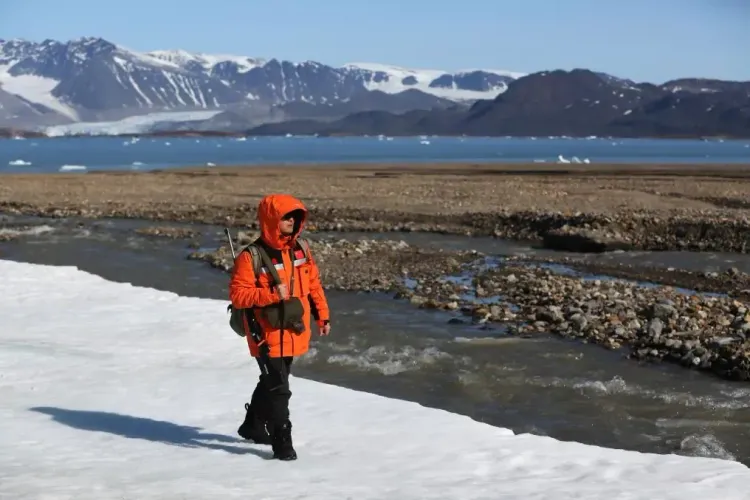What is the Danish-led initiative IcyAlert predicting for Arctic summers?

Synopsis
Key Takeaways
- IcyAlert is a Danish-led initiative focused on forecasting ice-free Arctic summers.
- The project may predict scenarios as early as the 2030s.
- Experts warn of potential global consequences such as severe weather disruptions.
- The first forecasts are expected to be available by 2028.
- Collaboration among leading institutions enhances research accuracy.
Oslo, June 28 (NationPress) A new research initiative spearheaded by Denmark, named IcyAlert, is set to launch with the ambition of creating a sophisticated forecasting system designed to predict when the Arctic region will endure ice-free summers. This alarming scenario may materialize as soon as the 2030s.
The project, orchestrated by the Danish Meteorological Institute (DMI), is slated to continue until 2031. Its primary aim is to offer timely alerts regarding the timing and potential global repercussions of an ice-free Arctic. Experts caution that this situation could incite intensified heatwaves, more robust storms, and significant disruptions to international weather patterns, ecosystems, and fisheries.
“The occurrence of ice-free summers in the Arctic is no longer a far-off prospect. This is a reality that may arise before the global temperature escalates by 2 degrees Celsius,” stated Tian Tian, the project leader from the National Centre for Climate Research at the DMI.
Tian highlighted that Arctic sea ice is critical for regulating the Earth's climatic systems, and its loss could substantially exacerbate extreme weather events well beyond the polar areas, as reported by Xinhua news agency.
The IcyAlert project brings together top specialists from DMI, the Technical University of Denmark, and the Royal Meteorological Institute of Belgium. By leveraging artificial intelligence, sophisticated climate modelling, and causal analysis, the team aspires to deliver both short-term and long-term forecasts regarding ice-free Arctic conditions and their worldwide effects.
The first predictions are anticipated to be unveiled by 2028.
Numerous research initiatives at the DMI are focused on the Arctic, which also entails forecasting weather, ocean, ice, and wave conditions for Greenland. Consequently, they operate numerical prediction models for weather, ocean-ice, and wave conditions in Greenland, providing official forecasts. The DMI is actively involved in various climate studies in the Arctic, encompassing coupled atmosphere-ice sheet modelling as well as ocean and sea ice research, particularly concerning Greenland fjords and the surrounding waters of the Arctic Ocean.









